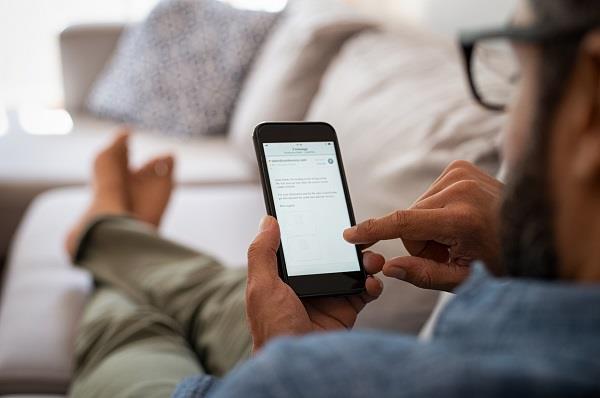
Closeup of a man hand holding cellphone with internet browser on screen. Man with spectacles relaxing sitting on couch while looking at mobile phone. Closeup of mature latin man using smartphone to checking email at home. (Closeup of a man hand holdin
In a hyper-connected world where smartphones rarely leave our hands and screens dominate our daily routines, the idea of a digital detox may sound radical. Yet, the science is clear: excessive screen time—especially from social media and constant notifications—can take a significant toll on mental well-being. Taking intentional breaks from digital devices can lead to substantial improvements in mood, focus, sleep, and overall quality of life.
This article explores the mental health benefits of digital detoxing and why unplugging might be the best thing you do for your mind.
1. Improved Mood and Reduced Anxiety
Constant digital engagement, especially on social media, has been linked to increased levels of anxiety, depression, and low self-esteem. Comparing our lives to curated online personas can create unrealistic expectations and feelings of inadequacy.
Why it helps:
A digital detox allows the brain to reset. Reduced exposure to social comparison and negative content leads to improved mood and emotional resilience.
Tip:
Try limiting social media usage to 30 minutes a day, or designate “screen-free” hours in the morning and evening.
2. Better Focus and Mental Clarity
Digital devices bombard us with information, causing frequent distractions and reduced attention span. Multitasking between emails, apps, and notifications can result in mental fatigue and decreased productivity.
Why it helps:
Unplugging helps your brain focus on one task at a time, improving concentration, creativity, and cognitive function. It also supports better decision-making by reducing information overload.
Tip:
Use “focus mode” or “do not disturb” settings during work or study time to create uninterrupted blocks of productivity.
3. Enhanced Sleep Quality
Screen time before bed—especially exposure to blue light—disrupts melatonin production, which is essential for sleep. Scrolling late at night can delay sleep onset and reduce sleep quality.
Why it helps:
Digital detoxing before bedtime promotes deeper, more restorative sleep. This leads to better energy levels, mood regulation, and mental sharpness during the day.
Tip:
Establish a digital curfew at least 1 hour before sleep. Replace screen time with calming activities like reading a book or meditating.
4. Stronger Real-Life Connections
While digital platforms help us stay connected, they can also isolate us from those physically around us. Mindless scrolling often replaces meaningful conversations and face-to-face interaction.
Why it helps:
Reducing digital distractions strengthens relationships, empathy, and social engagement. Real-life interactions trigger positive emotional responses and build stronger emotional bonds.
Tip:
Plan regular device-free meals or outings with family and friends to reconnect without digital interference.
5. Increased Self-Awareness and Mindfulness
Digital overload often pulls us out of the present moment. Constant notifications and multitasking can make us reactive rather than reflective.
Why it helps:
Digital detoxing encourages mindfulness, helping you become more aware of your thoughts, feelings, and behaviors. It fosters a sense of control over your time and energy.
Tip:
Start with short detox periods—like a weekend without social media or a 24-hour phone-free challenge—to reconnect with your inner self.
Final Thoughts
A digital detox doesn’t mean giving up technology entirely—it means creating healthier boundaries with your devices. By consciously stepping away from screens, even briefly, you give your mind the space it needs to rest, recover, and refocus.




